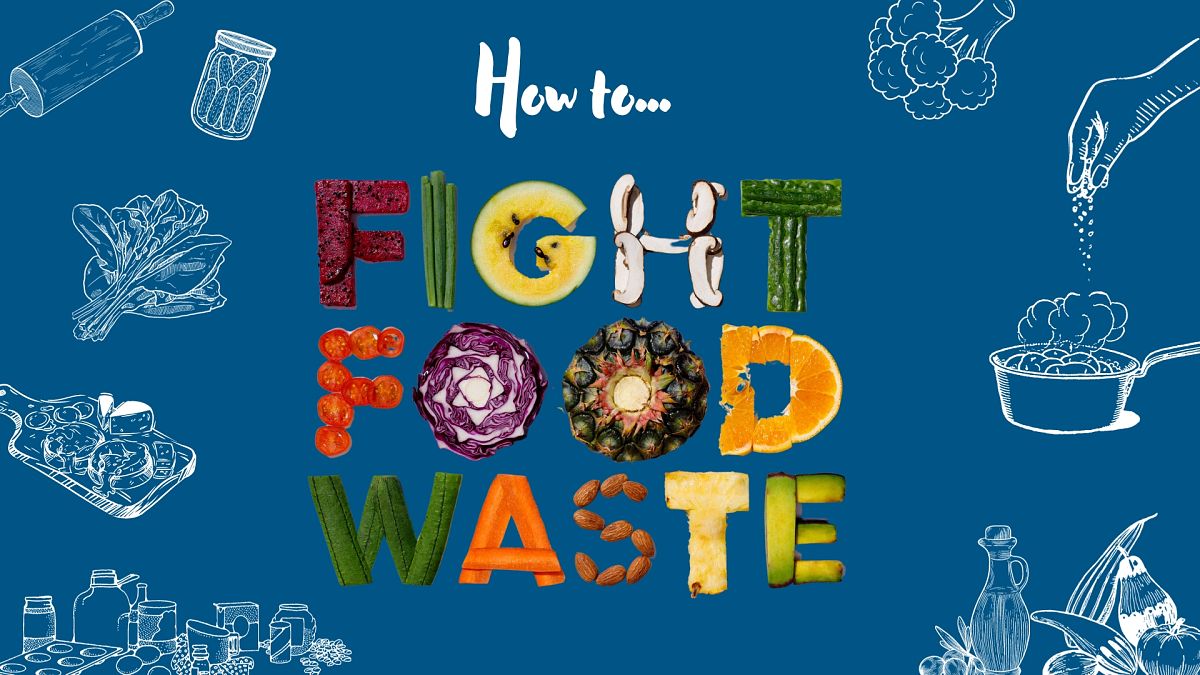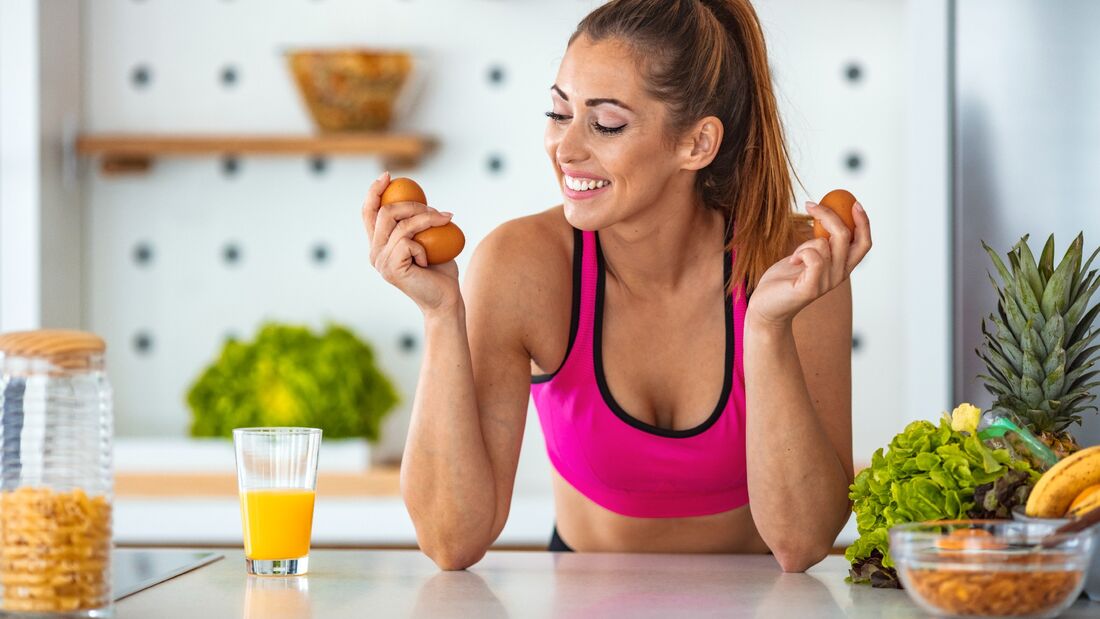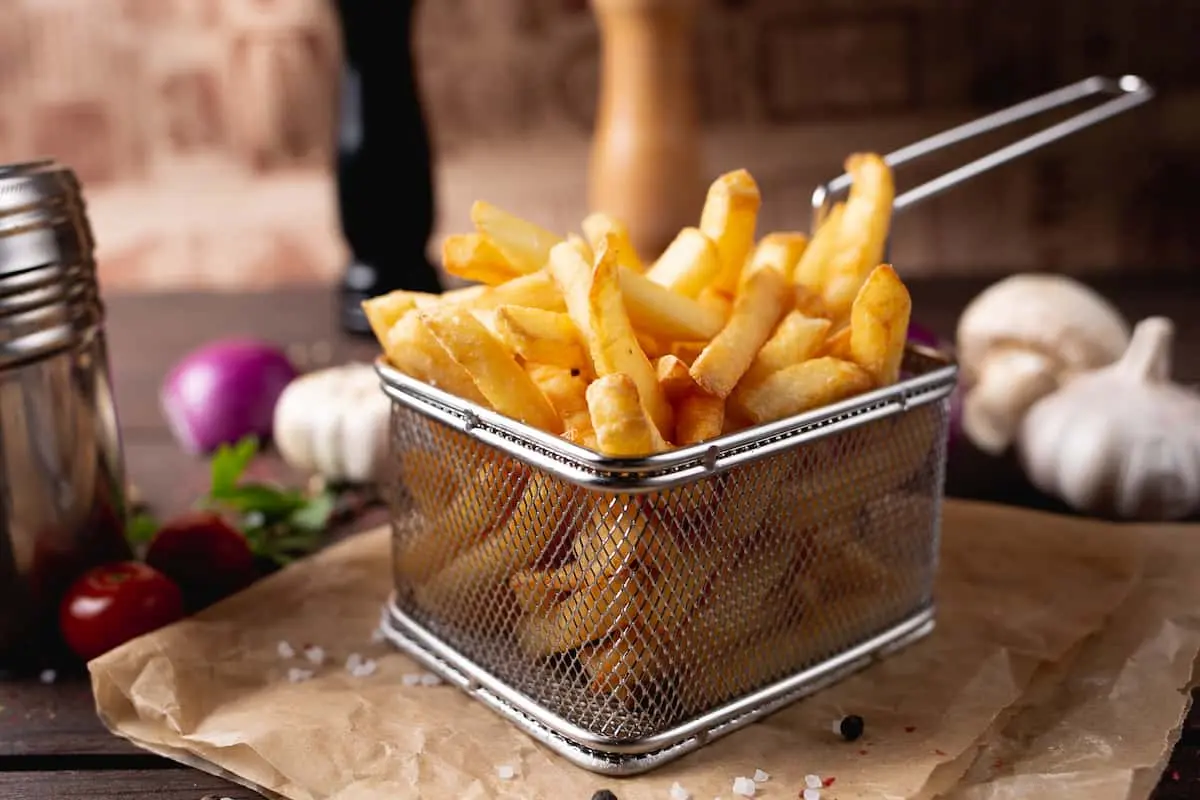
Do you want to reduce food waste? Here are some tips to get you started
Are you new to the low waste lifestyle? Here are some tips to get you started and some social networks that can serve as inspiration.
Are you still throwing vegetable peelings in the trash? Do you feel guilty when you see that wilted head of lettuce staring at you from the back of the fridge, but you have no idea what to do with it?
Unfortunately, he is not the only one.
More than half of all food waste generated in the European Union in 2021 – a whopping 153 million tonnes – came from households. According to the UN, half of the fruits and vegetables sold in the EU end up in the trash.
The statistics on food waste in Europe, a continent that prides itself on its environmental consciousness and progressivism, are actually quite discouraging.
But starting at the bottom can also be exciting: it means there's no choice but to go up.
You can make simple changes at an individual level that will make a big difference to your environment.
If you're wanting to reduce food waste but don't know where to start, we've compiled some of the best low-waste cooking and lifestyle stories from around the internet to help you make better use of your food, along with some tips and tricks. for a start.
You might even become a better cook.
1. Get familiar with composting. It's not just for those who have a garden.
Composting can be a scary concept. The thought of a pile of food scraps decomposing in your already cramped studio may give you goosebumps.
But if composting is something that intrigues you, or if you want some free nutrient-rich soil for your houseplants, lack of space isn't something that should stop you.
There are composting options for homes of all sizes – check out the Bokashi composting technique, perfect for small spaces.
And if you need a little inspiration on all things composting, check out the Compost Fairy account at Instagram either Youtube. This composting educator and consultant regularly posts videos in which she explains the ins and outs of composting.
He even made a practical guide which explains the basics for beginners.
2. Get creative with vegetable peelings
Vegetable peelings are one of the most common kitchen scraps that end up in the bucket. You can throw them in the compost if you have it on hand. But you can also take the opportunity to unleash the chef inside you.
The classic thing would be to make a vegetable broth, adding the leftover peels along with the tips of the carrots, the skins of the onions, the withered herbs that you have in the refrigerator and aromatics such as garlic.
You can also follow Alessandro Vitale's example and make vegetable chips by marinating the peels and putting them in the oven. It even has a zero waste sauce recipe to go with them.
Vitale is an urban gardening expert based in London and your account It contains lots of tips on how to grow your own produce and make the most of every inch. It's a great place to get tips on how to reduce food waste and live a greener lifestyle in a big city.
3. Get some good containers (with lids!)
Another key to wasting less food is to buy only the amount of perishables you know you can eat, and store them so they stay fresh for as long as possible.
Here is a very useful video from Vitale on how to store different types of products in the refrigerator so that they last longer.
A good way to start is to ditch the packaging and invest in quality glass tupperware with lids, so leftovers stay fresh for days.
Another trick that works in a pinch is to cover a bowl of leftovers with a plate.
4. Discover the magic of Aquafaba
Zero waste cooking is an exercise in deconstructing preconceived ideas about what works in the kitchen. One of the most elegant examples of an ingredient that can be used in a million different ways is Aquafaba.
That leftover liquid in jars of chickpeas, and that you've probably been pouring down the drain, is actually liquid gold.
Did you know that you can use it as an egg substitute to make vegan desserts, mayonnaise and even cocktails?
Check out some tips on what to do with Aquafaba from the Zero Waste Cooking School Instagram account, run by Douglas McMaster, zero food waste pioneer and owner of the world's first zero waste restaurant, Silo London.
The Zero Waste Cooking School is a rich resource of ideas – how to transform fruit peels in probiotic drinksas create flavor bombs from forgotten products in your fridge and much more.
5. Rescue wilted lettuce with this ice water trick
Almost any green leaf can be rescued with a handful of ice cubes and a little water. If you notice that your precious iceberg lettuce is a little wilted, try these tips from Mei and Irene Li.
These sister chefs, based in Glasgow and Boston, have developed recipes that save products from the depths of refrigeration desperation.
They have published a cookbook titled “Perfectly Good Food: A Totally Achievable Zero Waste Approach to Home Cooking”, which demystifies the idea of zero-waste cooking and makes it accessible to almost everyone.
And her Instagram account is full of tips on how to use up specific ingredients, creative ways to use kitchen scraps, and inspiration for delicious “everything but the kitchen sink” meals.
6. 6. Freeze everything!
Speaking of storing food before it goes bad, you're probably not using your freezer enough! There are so many things you can freeze and save, and so many techniques to make it easier for you to use in the future.
You may have heard of freezing fresh herbs in ice cube trays to make single-serving flavor bombs for later. But if you've ever wondered how to freeze something – and what you can do with it afterwards – you'll love Kate Hall's Instagram called “Can I freeze it?”.
The zero-waste advocate posts a new video every Friday explaining how to freeze a specific ingredient and then what you can do with it when you defrost it.
Spoiler: The answer to the question is almost always YES YOU CAN!
7. Have fun experimenting with new recipes
The best way to follow a new lifestyle is to make it fun.
Instead of pressuring yourself to save your leftovers because it's good for the environment and you want to be a good citizen of the world, try rethinking it.
Make saving leftovers something you look forward to doing because it's a good way to try new recipes and enjoy cooking.
Many of the accounts we've shared have delicious recipes you can try, but if you want even more inspiration check out Max La Manna's Instagram account.
This low-waste chef published a vegan cookbook last year titled “You Can Cook This!” (You can cook this!) on how to turn 30 commonly wasted foods into delicious plant-based dishes.
In her account you will find a ton of delicious and creative recipes that will help you save products from the trash while discovering your new favorite food.

Russell age 28 years Studying in world cooking I have a degree in England
Studying in world cooking I have a degree in England

